- Home
- James Rollins
Map of Bones Page 4
Map of Bones Read online
Page 4
Where?
He was running out of time.
5:13 A.M.
WASHINGTON, D.C.
HE’S ON the roof!” the technician said, jabbing a finger at the monitor from the NRO satellite.
Painter leaned closer and spotted a tiny figure stepping into view. What was Grayson doing on the roof? Painter searched the immediate area. “Any sign of pursuit?”
“None that I can detect, sir.”
Logan spoke from the phone. “Base security reports a fire alarm going off in Building 470.”
“Must’ve tripped the exit alarm,” the tech interjected.
“Can you get us any closer?” Painter asked.
The technician nodded and toggled a switch. The image zoomed down atop Grayson Pierce. His helmet was gone. His left ear appeared stained, bloody. He continued to stand by the doorway.
“What is he doing?” the tech asked.
“Base security is responding,” Logan reported.
Painter shook his head, but a cold certainty iced through him. “Tell base security to stay away. Have them evacuate anyone near that building.”
“Sir?”
“Do it.”
5:14 A.M.
FREDERICK, MARYLAND
GRAY SCANNED the roof one more time. The emergency Klaxon continued to wail. He ignored it, drawing inward. He had to think like his quarry.
He crouched low. It had rained last night. He imagined the woman had only planted the vials recently, after the downpour. He looked carefully and noted where the sand washed smooth by the rain had been disturbed. It wasn’t too difficult, as he knew she had to have passed through this door. It was the only roof access.
He trailed her steps.
They led across the roof to a hooded exhaust vent.
Of course.
The exhaust flume would serve as the perfect chimney to expel the spores as the lower levels of the building imploded, creating a toxic blowgun.
Kneeling, he spotted where she had tampered with the hood, disturbing an old layer of rust. He didn’t have the time to check for booby traps. He yanked the vent off with a grunt.
The bomb rested inside the duct. The fifteen glass vials were arrayed in a starburst around a central pellet of C4, just enough to shatter the containers. He stared at the white powder filling each tube. Biting his lower lip, he reached down and carefully lifted the bomb out of the duct’s throat. A timer counted down.
00:54.
00:53.
00:52.
Free of the ductwork, Gray straightened. He did a fast check of the bomb. It was rigged against tampering. He had no time to decipher the wires and electronics. The bomb was going to go off. He had to get it away from the building, away from the blast zone, preferably away from him.
00:41.
Only one chance.
He tucked the bomb into a nylon ditty pouch over one shoulder and stalked to the front of the building. Headlights aimed toward the building, drawn by the alarm. Base security would never reach here in time.
He had no choice.
He had to get clear…no matter his own life.
Retreating several steps from roof’s edge, he took a deep breath, then sprinted back toward the front of the building. Reaching the roof’s edge, he bounded up and leaped over the brick parapet.
He sailed out over the six-story drop.
5:15 A.M.
WASHINGTON, D.C.
CHRIST ALMIGHTY!” Logan exclaimed as Grayson made the leap off the roof.
“He’s numb-nuts crazy,” the tech appended, jerking to his feet.
Painter simply watched the man’s suicidal ploy. “He’s doing what he must.”
5:15 A.M.
FREDERICK, MARYLAND
GRAY KEPT his legs under him, arms out for balance. He plummeted earthward. He prayed the laws of physics, velocity, trajectory, and vector analysis didn’t betray him.
He readied for the impact.
Two stories below and twenty yards out, the spherical roof of the Eight Ball rose up to meet him. The million-liter steel containment globe glistened with morning dew.
He twisted in midair, struggling to keep his plunge feet-first.
Then time sped up. Or he did.
His booted feet hit the surface of the sphere. The liquid body armor cemented around his ankles, protecting against a break. Momentum slammed him forward, facedown, spread-eagled. But he had not reached the center of the sphere’s roof, only the curved shell closest to Building 470.
Fingers scrabbled, but there was no grip, no traction.
His body slid down the dew-slick steel, twisting slightly askew. He spread his legs, toes dragging for friction. Then he was past the point of no return, free-falling down the sheer side.
With his cheek pressed to the steel, he didn’t see the catwalk until he struck it. His left leg hit, then his body tumbled after it. He landed on hands and knees atop the metal scaffolding that had been built around the equator of the steel globe. He shoved to his feet, legs wobbling from the strain and the terror.
He couldn’t believe he was still alive.
He searched the curve of the sphere while freeing the bio-bomb from his ditty bag. The surface of the containment globe was pocked with portholes, once used by scientists to observe their biological experiments inside. In all the years of its regular use, no pathogen had ever escaped.
Gray prayed the same held true this morning.
He glanced to the bomb in his hand: 00:18.
With no time to curse, he ran along the exterior catwalk, searching for an entry hatch. He found it half a hemisphere away. A steel door with a porthole. He sprinted to it, grabbed the handle, and tugged.
It refused to budge.
Locked.
5:15 A.M.
WASHINGTON, D.C.
PAINTER WATCHED Grayson tug at the hatch on the giant sphere. He noted the frantic strain, recognized and understood the urgency. Painter had seen the explosive device retrieved from the exhaust duct. He knew the mission objective of Grayson’s team: to lure out a suspected trafficker in weaponized pathogens.
Painter had no doubt what form of death lay inside the bomb.
Anthrax.
Plainly, Grayson could not defuse the device and sought to safely dispose of it.
He was having no luck.
How much time did he have?
5:15 A.M.
FREDERICK, MARYLAND
00:18
Grayson ran again. Maybe there was another hatch. He clomped around the catwalk. He felt like he was running in ski boots, his ankles still cemented in his body suit.
He circled another half a hemisphere.
Another hatch appeared ahead.
“YOU! HOLD RIGHT THERE!”
Base security.
The fierceness and boom of the bullhorn almost made him obey.
Almost.
He kept running. A spotlight splayed over him.
“STOP OR WE’LL FIRE!”
He had no time to negotiate.
A deafening rattle of gunfire pelted the side of the sphere, a few rounds pinging off the catwalk. None were near. Warning shots.
He reached the second hatch, grabbed the handle, twisted, and tugged.
It stuck for a breath, then popped open. A sob of relief escaped him.
He pitched the device into the hollow interior of the sphere, slammed the door secure, and leaned his back against it. He slumped to his seat.
“YOU THERE! STAY WHERE YOU ARE!”
He had no intention of going anywhere. He was happy right where he was. He felt a small jolt on his back. The sphere rang like a struck bell. The device had blown inside, safely contained.
But it was only the primer cord of greater things to come.
Like the clash of titanic gods, a series of jarring explosions rocked the ground.
Boom…boom…boom…
Sequential, timed, engineered.
It was the wired demolitions of Building 470.
E
ven insulated on the far side of the sphere, Gray felt the slight suck of air, then a mighty whoosh of displacement as the building took its last deep breath and expelled it. A dense wall of dust and debris washed outward as the building collapsed. Gray glanced up in time to see a mighty plume of smoke and dust bloom upward, seeding high and spreading out with the wind.
But no death rode this breeze.
A final explosion thundered from the dying building. A rumble of brick and rock sounded, a stony avalanche. The ground bumped under him—then he heard a new sound.
The screech of metal.
Shoved by the explosion, its foundations shaken, two of the Eight Ball’s support legs popped and bent, as if the sphere were attempting to kneel. The whole structure tilted away from the building, toward the street.
More legs popped.
And once started, there was no stopping it.
The million-liter containment sphere toppled toward the line of security trucks.
With Gray directly under it.
He shoved up and scrabbled along the tilting catwalk, struggling to get clear of the impact. He ran several steps, but the way quickly grew too steep as the sphere continued its plummet. Catwalk became ladder. He dug his fingers into the metal framework, kicked his legs at the support struts of the railings. He fought to get out from beneath the shadow of the crushing weight of the globe.
He made one final desperate lunge, grabbing a handhold and digging in his toes.
The Eight Ball struck the front lawn of the courtyard and pounded into the rain-soaked loam. The impact traveled up the catwalk, slamming Gray from his perch. He flew several yards and landed on his back on the soft lawn. He had only been a few yards from the ground.
Sitting up, he leaned on one elbow.
The line of security trucks had retreated as the ball fell toward them.
But they would not stay gone. And he must not get caught.
Gray gained his feet with a groan and stumbled back into the pall of smoke from the collapsed building. Only now did he hear the alarms ringing throughout the base. He shed out of his body suit as he moved, transferring his identification tags to his civilian clothes beneath. He hurried to the far side of the courtyard, to the next building, to where he had left his motorcycle.
He found it intact.
Throwing a leg over the seat, he keyed the ignition. The engine purred happily to life. He reached for the throttle, then paused. Something had been hooked around his handlebar. He freed it, stared at it for a moment, then shoved it in a pocket.
Damn…
He throttled up and edged his bike to a neighboring alleyway. The path appeared clear for the moment. He hunched down, gunned the engine, and shot between the dark buildings. Reaching Porter Street, he made a sharp left turn, coming around fast, leaning out his left knee for balance. Only a couple cars shared the street. None of them appeared to be MP vehicles.
He zigzagged around them and sped off toward the more rural section of the base that surrounded Nallin Pond, a parkland region of gently rolling hills and patches of hardwood forest.
He would wait out the worst of the commotion, then slip away. For now, he was safe. Still, he felt the weight of the object in his pocket, left as decoration on his bike.
A silver chain…with a dangling dragon pendant.
5:48 A.M.
WASHINGTON, D.C.
PAINTER STEPPED back from the satellite console. The technician had caught Grayson’s escape by motorcycle as he appeared out of the cloud of smoke and dust. Logan was still on the phone, passing information down a series of covert channels, sounding the all-clear. Whitewashed from on high, the trouble at the base would be blamed on miscommunication, faulty wiring, decomposing munitions.
Sigma Force would never be mentioned.
The satellite tech held his earpiece in place. “Sir, I have a telephone call from the director of DARPA.” “Switch it over here.” Painter plucked up another receiver. He listened as the scrambled communication was routed.
The tech nodded to him as the dead air over the line seemed to breathe to life. Though no one spoke, Painter could almost sense his mentor and commander. “Director McKnight?” he said, suspecting the man was calling to get a mission debrief.
His suspicion proved wrong.
He heard the stress in the other’s voice. “Painter, I just received some intel out of Germany. Strange deaths at a cathedral. We need a team on the ground there by nightfall.”
“So soon?”
“Details will follow within the quarter hour. But we’re going to need your best agent to head this team.”
Painter stared over at the satellite monitor. He watched the motorcycle skim through the hills, flickering through the sparse canopy of trees.
“I may have just the man. But may I ask what the urgency is?”
“A call came in early this morning, requesting Sigma to investigate the matter in Germany. Your group has been specifically summoned.”
“Summoned? By whom?”
To have Dr. McKnight this rattled, it had to be someone as high up as the President. But once again, Painter’s supposition proved wrong.
The director explained, “By the Vatican.”
2
THE ETERNAL CITY
JULY 24, NOON
ROME, ITALY
SO MUCH for making her lunch date.
Lieutenant Rachel Verona climbed down the narrow stairs that led deep under the Basilica of San Clemente. The excavation below the church had been under way for two months, overseen by a small team of archaeologists from the University of Naples.
“Lasciate ogni speranza…”Rachel muttered.
Her guide, Professor Lena Giovanna, the project leader, glanced back at her. She was a tall woman, mid-fifties, but the permanent crook in her back made her seem older and shorter. She offered Rachel a tired smile. “So you know your Dante Alighieri. And in the original Latin no less. Lasciate ogni speranza, voi ch’entrate! Abandon all hope, ye who enter here.”
Rachel felt a twinge of embarrassment. According to Dante, those words were written on the gates of Hell. She had not meant her words to be heard, but the acoustics here left little privacy. “No offense intended, Professore.”
A chuckle answered her. “None taken, Lieutenant. I was just surprised to find someone in the military police with such fluency in Latin. Even someone working for the Carabinieri Tutela Patrimonio Culturale.”
Rachel understood the misconception. It was fairly typical to paint all the Carabinieri Corps with the same brush. Most civilians only saw the uniformed men and women guarding streets and buildings, armed with rifles. But she had entered the Corps not as a military soldier, but with a graduate degree in psychology and art history. She had been recruited into the Carabinieri Corps right out of the university, spending an additional two years at the officers’ training college studying international law. She had been handpicked by General Rende, who ran the special unit involved with the investigation of art and antiquity thefts, the Tutela Patrimonio Culturale.
Reaching the bottom of the stairs, Rachel stepped into a pool of dank water. The storm of the past few days had flooded the subterranean level. She glanced down sourly. At least it was only ankle-deep.
She wore a borrowed set of rubber boots that were too large, meant for a man. She carried her new Ferragamo pumps in her left hand, a birthday gift from her mother. She dared not leave them on the stairs. Thieves were always about. If she lost her shoes or got them soiled, she’d never hear the end of it from her mother.
Professor Giovanna, on the other hand, wore a utilitarian coverall, an attire more fitting for exploring waterlogged ruins than Rachel’s navy slacks and silk flowered blouse. But when Rachel’s pager had gone off a quarter hour ago, she had been heading over to a lunch date with her mother and sister. She’d had no time to return to her apartment and change into her carabiniere uniform. Not if she was going to have any chance of still making that lunch.
So she had com
e directly here, meeting up with a pair of local carabinieri. Rachel had left the military policemen up in the basilica while she performed the initial investigation into the theft.
In some regards, Rachel was glad for the temporary reprieve. She had put off for too long letting her mother know that she and Gino had broken up. In fact, her ex-boyfriend had moved out more than a month ago. Rachel could already picture the knowing disappointment in her mother’s eyes, accompanied by the usual noises that implied I told you so without coming out and actually saying it aloud. And her older sister, three years married, would be pointedly twisting that diamond wedding band on her finger and nodding her head sagely.
Neither had been pleased with Rachel’s choice of profession.
“How are you to keep a husband, you crazy girl?” her mother had intoned, throwing her arms toward heaven. “You cut your beautiful hair so short. You sleep with a gun. No man can compete with that.”
As a consequence, Rachel rarely left Rome to visit her family in rural Castel Gandolfo, where their family had settled after World War II, in the shadow of the pope’s summer residence. Only her grandmother understood her. The two had shared a love of antiquities and firearms. While growing up, Rachel had listened avidly to her stories of the war: gruesome tales laced with graveyard humor. Her nonna even kept a Nazi P-08 Luger in her bedside table, oiled and polished, a relic stolen from a border guard during her family’s flight. There was no knitting booties for that old woman.
“It’s just up ahead,” the professor said. She splashed forward toward a glowing doorway. “My students are keeping watch on the site.”
Rachel proceeded after her guide, reached the low doorway, and ducked through. She straightened into a cavelike room. Illuminated by carbide lanterns and flashlights, the vault of the roof arched overhead, constructed of hewn blocks of volcanic tufa sealed crudely with plaster. A man-made grotto. Plainly a Roman temple.
As Rachel waded into the room, she was all too conscious of the weight of the basilica overhead. Dedicated to Saint Clement in the twelfth century, the church had been built over an earlier basilica, one constructed back in the fourth century. But even this ancient church hid a deeper mystery: the ruins of a first-century courtyard of Roman buildings, including this pagan temple. Such overbuilding was not uncommon, one religion burying another, a stratification of Roman history.

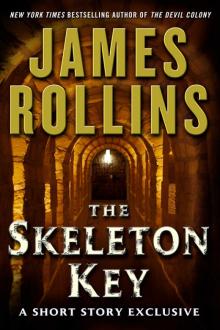 The Skeleton Key
The Skeleton Key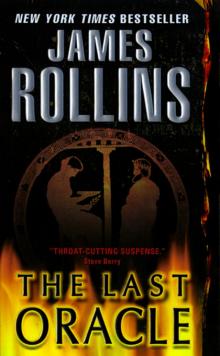 The Last Oracle
The Last Oracle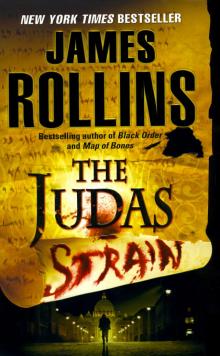 The Judas Strain
The Judas Strain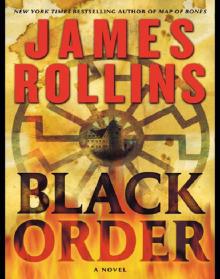 Black Order
Black Order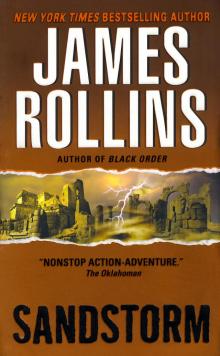 Sandstorm
Sandstorm Ghost Ship
Ghost Ship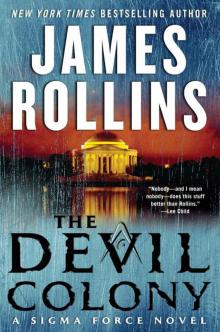 The Devil Colony
The Devil Colony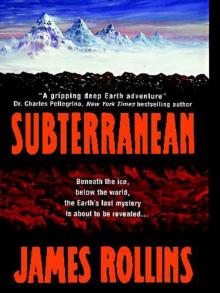 Subterranean
Subterranean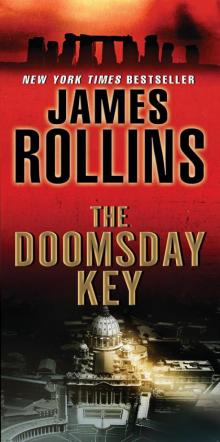 The Doomsday Key
The Doomsday Key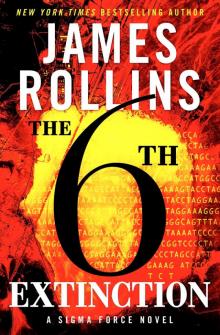 The 6th Extinction
The 6th Extinction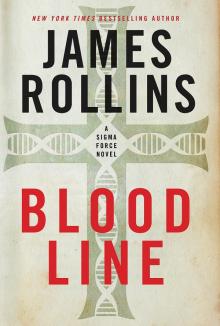 Bloodline
Bloodline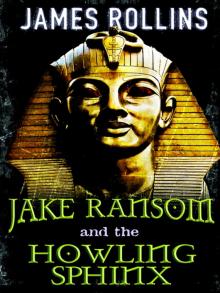 Jake Ransom and the Howling Sphinx
Jake Ransom and the Howling Sphinx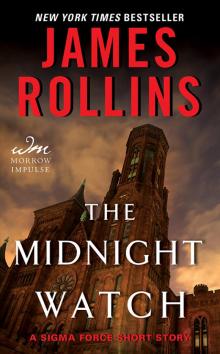 The Midnight Watch
The Midnight Watch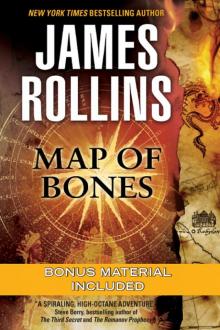 Map of Bones
Map of Bones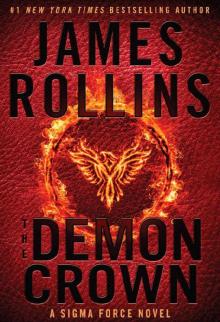 The Demon Crown
The Demon Crown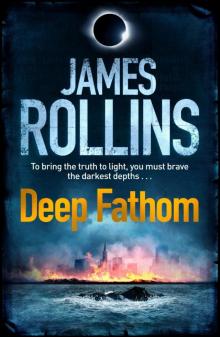 Deep Fathom
Deep Fathom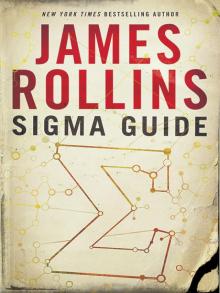 Sigma Guide
Sigma Guide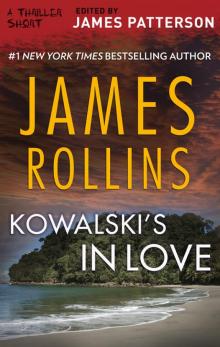 Kowalski's in Love
Kowalski's in Love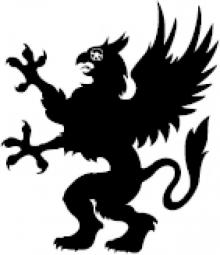 Jake Ransom and the Skull King's Shadow
Jake Ransom and the Skull King's Shadow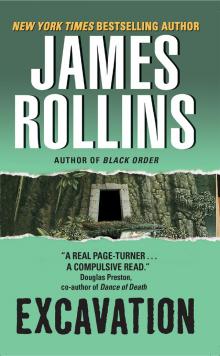 Excavation
Excavation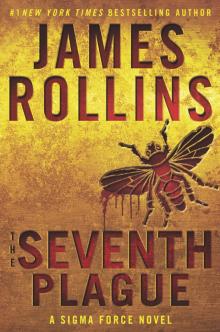 The Seventh Plague
The Seventh Plague Altar of Eden
Altar of Eden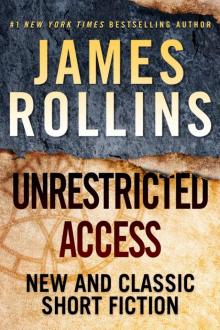 Unrestricted Access: New and Classic Short Fiction
Unrestricted Access: New and Classic Short Fiction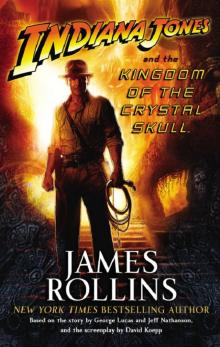 Indiana Jones and the Kingdom of the Crystal Skull
Indiana Jones and the Kingdom of the Crystal Skull Crucible
Crucible The Eye of God
The Eye of God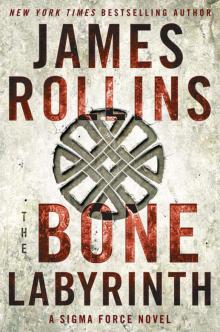 The Bone Labyrinth
The Bone Labyrinth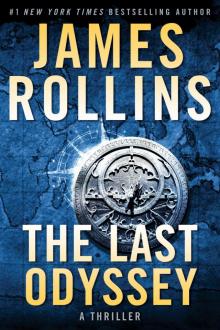 The Last Odyssey: A Thriller
The Last Odyssey: A Thriller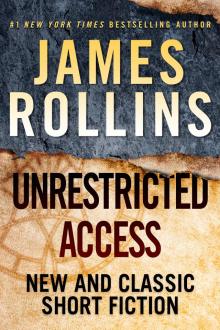 Unrestricted Access
Unrestricted Access Amazonia
Amazonia Blood Brothers: A Short Story Exclusive
Blood Brothers: A Short Story Exclusive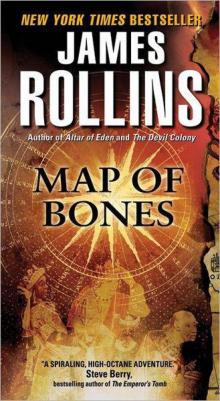 Map of Bones: A Sigma Force Novel
Map of Bones: A Sigma Force Novel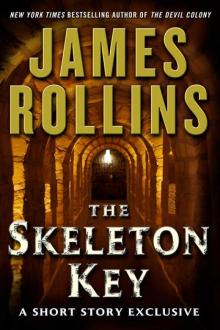 The Skeleton Key (sigma force)
The Skeleton Key (sigma force)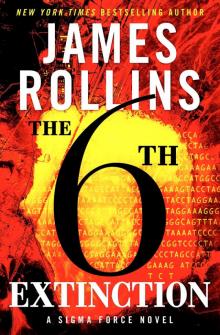 Sigma Force 10 - The Sixth Extinction
Sigma Force 10 - The Sixth Extinction Innocent Blood
Innocent Blood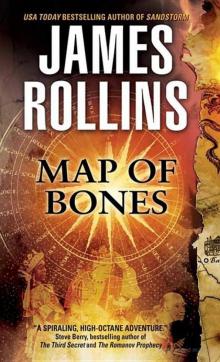 Map of Bones sf-2
Map of Bones sf-2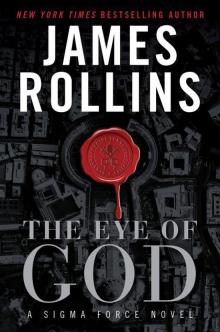 The Eye of God: A Sigma Force Novel
The Eye of God: A Sigma Force Novel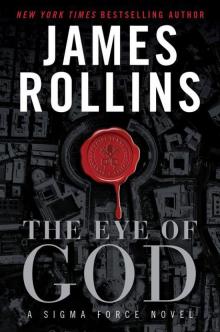 The Eye of God: A Sigma Force Novel sf-9
The Eye of God: A Sigma Force Novel sf-9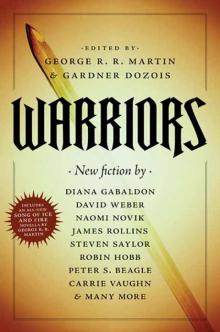 The Pit
The Pit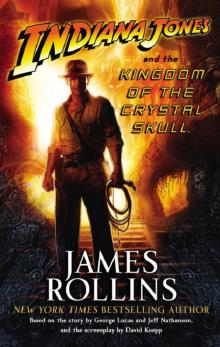 Indiana Jones and the The Kingdom Of The Crystal Skull
Indiana Jones and the The Kingdom Of The Crystal Skull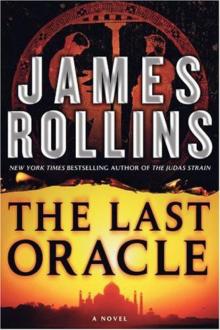 The Last Oracle (2008) sf-5
The Last Oracle (2008) sf-5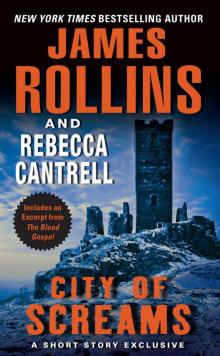 City of Screams
City of Screams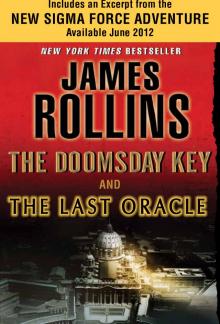 The Doomsday Key and The Last Oracle with Bonus Excerpts
The Doomsday Key and The Last Oracle with Bonus Excerpts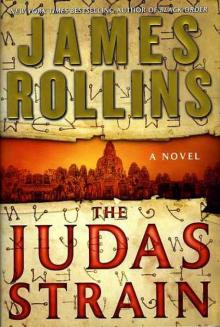 The Judas Strain sf-4
The Judas Strain sf-4 Blood Infernal
Blood Infernal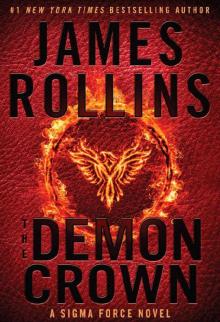 The Demon Crown: A Sigma Force Novel
The Demon Crown: A Sigma Force Novel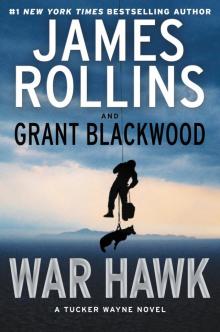 War Hawk: A Tucker Wayne Novel
War Hawk: A Tucker Wayne Novel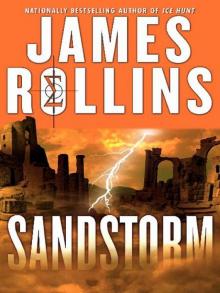 SANDSTORM sf-1
SANDSTORM sf-1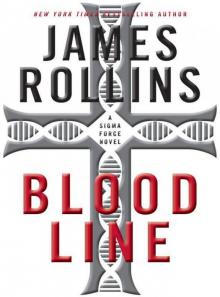 Bloodline: A Sigma Force Novel
Bloodline: A Sigma Force Novel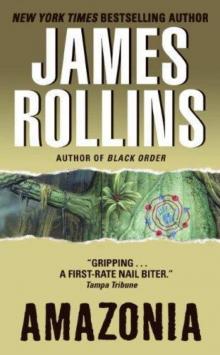 Amazonia: a novel
Amazonia: a novel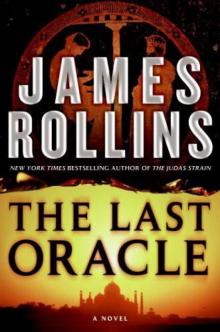 The Last Oracle: A Sigma Force Novel
The Last Oracle: A Sigma Force Novel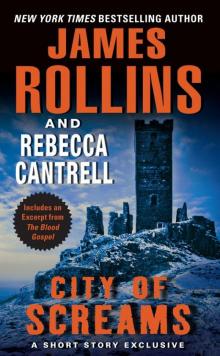 City of Screams (the order of the sanguines)
City of Screams (the order of the sanguines)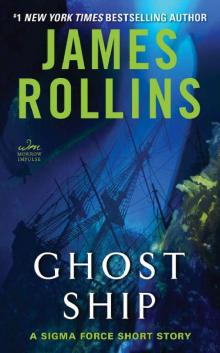 Ghost Ship: A Sigma Force Short Story
Ghost Ship: A Sigma Force Short Story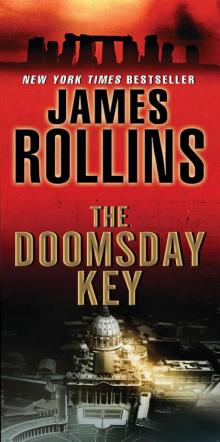 The Doomsday Key: A Sigma Force Novel
The Doomsday Key: A Sigma Force Novel